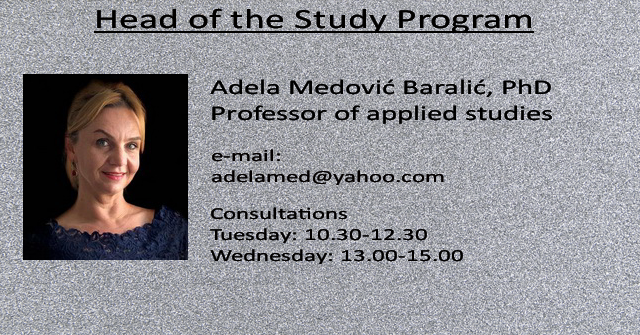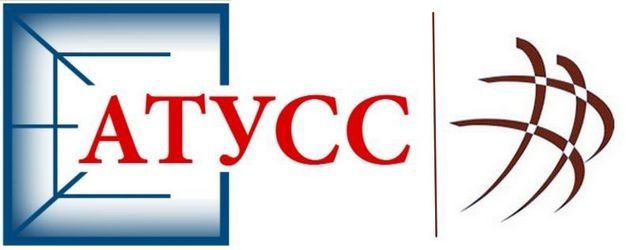
General information
Basic applied studies take three years, or six semesters. All student activities are graded according to the European Credit Transfer System (ECTS), so that each semester carries 30 ECTS points. Upon a successful completion of the studies, the total number of ECTS points obtained is 180. The studies are realized in the form of traditional classroom teaching, in Serbian. This study program belongs to the broader educational field of technical and technological sciences, the field of technological engineeringand the narrower field of textile engineering. Upon finishing basic applied studies, the student is awarded the title „Bachelor of Applied Technology“, or „BaAppTech“ / „B.A.T“ for short.
Qualification
According to the National Qualifications Framework in Serbia (NOKS), upon finishing basic applied studies the student reaches level six, sublevel one (level 6.1). To reach this level, the student is first required to have a high school degree and to pass the entrance exam.
Classes and exams
All of the courses at this study program take one semester to finish. Student activities throughout the semester (pre-exam obligations), such as attendance and active participation in class, practical work, mid-term exams, test, papers and homework are all awarded a certain number of points. The ratio between the number of points obtained through the fulfilment of pre-exam obligations and the points obtained at the final exam is established for each individual course separately; the pre-exam obligations can carry a minimum of 30, and a maximum of 70 points. The final exams take place on-site, at the Department, in the appropriate exam terms, which are: January, February, June, July, Spetember and October. By fulfiling the pre-exam obligations and passing the final exam, the student can achieve a maximum of 100 points; for a grade of „6“, 51 points are needed; for „7“, 61 points; for „8“, 71 points; for „9“, 81 points; for „10“, 91 points.
Goals and Outcomes
The basic goal of the Textile Engineering study program is to achieve academic and vocational knowledge, competences and skills oriented towards textile engineering, making the graduates competent to perform tasks related to the technological processes of apparel and textile manufacturing.
The goals of the Textile Engineering study program include:
- The development of professional and creative abilities, creative thinking and inventive spirit, the development of teamwork, cooperation and communication skills of the student, i.e. the future Bachelor of Applied Technology.
- Mastering specific practical skills needed for their profession.
- Providing sufficient knowledge and competences that allow the Bachelor of Applied Techology to build a successful career in companies dedicated to the production of textile and clothing, in institutes and laboratories, as teachers of practical classes in high schools; also, to allow the graduate to implement their knowledge into their own production of textile and clothing.
- Influencing the industrial and economic development. In the Republic of Serbia, the textile and apparel industry has a long and rich tradition, which can only be preserved and updated to keep up with global standards if there are educated workers who are competent enough to discern and develop businesses related to primary textile production and garment production. The applied engineers who graduate from this program are precisely equipped with the knowledge necessary for the functioning and development of the textile and apparel industry in new market conditions.
- Influencing society on the whole. By employing engineers of applied textile technology, the quality of the workforce in the textile and apparel industry will improve. Through their work and knowledge obtained through this study program, our Bachelors of Applied Technology will influence the development of the textile and apparel industry, its competitive edge, and through that the development of the society on the whole.
The competences of future students
Upon finishing this study program, the student will have gained the following subject-specific abilities:
- knowledge of the primary production of textile materials, their structure and characteristics;
- planning and preparing the production in the apparel industry, garment construction and modeling, work study, technology processes related to apparel manufacturing;
- using software packages for the construction, modeling, grading and completion of garments;
- testing textiles and clothing and quality control of textile products.
Further studies
Upon graduating from basic applied studies, the students can continue their education at one of the programs of MASTER applied studies offered at the Department.
| The TEXTILE ENGINEERING program of basic applied studies was accredited in 2017. | |||
| Code | Course Title | Status | ECTS |
| FIRST YEAR | |||
| 1st Semester | |||
| MAT220001 | Mathematics | Compulsory | 6 |
| HEM220002 | Applied Chemistry | Compulsory | 6 |
| RAČ003126 | Computers | Compulsory | 6 |
| MEN000004 | Management | Compulsory | 6 |
| OSD002008 | Design Basic | Compulsory | 6 |
| 2nd Semester | |||
| FIZ220014 | Physics | Compulsory | 6 |
| ENG000006 | English | Compulsory | 6 |
| OSM001124 | The Basic of Mechanical Engineering | Compulsory | 6 |
| TVL001015 | Textile Fibers | Compulsory | 6 |
| OOO222137 | The Basic of Garment Shaping | Compulsory | 6 |
| SECOND YEAR | |||
| 3rd Semester | |||
| PIP003029 | Produstion Planning and Preparation | Compulsory | 6 |
| OTT221135 | The Basic of Textile Technology | Compulsory | 6 |
| MPK003031 | Apparel Machinery and Plants | Compulsory | 6 |
| TMA001028 | Textile Materials | Compulsory | 6 |
| KŽO223030 | Construction of Womenswear | Compulsory | 6 |
| 4th Semester | |||
| The students choose one of following electives | |||
| KDO223049 | Construction and Modeling of Childrenswear | Elective | 6 |
| KOK003066 | Quality Control for Textile Products | Elective | 6 |
| TIO003044 | Apparel Technology | Compulsory | 6 |
| KMO223045 | Construction of Menswear | Compulsory | 6 |
| MŽO223047 | Modeling of Womenswear | Compulsory | 7 |
| STR003046 | Work Study | Compulsory | 6 |
| STP223038 | Internship 1 | Compulsory | 6 |
| THIRD YEAR | |||
| 5th Semester | |||
| IST003059 | Textile Testing | Compulsory | 6 |
| OPT001062 | Textile Finishing | Compulsory | 6 |
| MMO223064 | Modeling of Menswear | Compulsory | 6 |
| The students choose one of following electives | |||
| IOD221051 | Denim Garments | Elective | 6 |
| PTM221180 | Auxiliary Textile Materials | Elective | 6 |
| The students choose one of following electives | |||
| MIO002019 | Fashion and Clothing | Elective | 6 |
| TČT001061 | Technical Textiles | Elective | 6 |
| 6th Semester | |||
| PRK221074 | Computer Aided Garment Manufacturing | Compulsory | 7 |
| The students choose one of following electives | |||
| ISO221125 | Sportswear | Elective | 6 |
| EUT221073 | Ecology in the Textile Industry | Elective | 6 |
| The students choose one of following electives | |||
| PDZ003131 | The Design Process | Elective | 6 |
| PDZ003056 | Entrepreneurship | Elective | 6 |
| STP223071 | Internship 2 | Compulsory | 4 |
| ZVR223128 | Final Paper | Compulsory | 6 |
